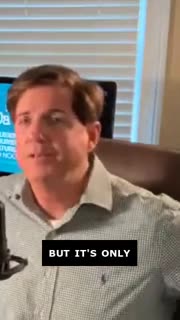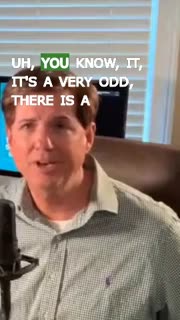Embracing Leadership: Moses' Journey of Transformation
Devotional
Sermon Summary
Bible Study Guide
Sermon Clips
### Quotes for outreach
1. "And each time with these, God responds by assuring Moses that he's going to be with Moses, that he'll help Moses speak. And he even gives Moses a series of signs so that he can use that to show the Israelites and convince them." [01:28] (16 seconds)
2. "If you're going to be a leader, you need to be authentic. You need to be all in, right? I took a leadership, uh, workshop one time. It was called off the map leadership, leading, you know, your people off the map to new places, you know, getting out of the box, off the map leadership." [15:20] (19 seconds)
3. "And so now he has to lead the children of Israel. You know, he needs to be clear, you know, and so he comes to this, this agreement. And it's after this, that we'll see that Moses really emerges from this encounter as a changed man. You know, he has come to grips, it looks like. With his identity and embraced his appointed role." [16:59] (24 seconds)
### Quotes for members
1. "But it's only when we dig down deep into the actual back of the book that we can find the central part of the story of exodus and we can find the biblical texts that I think we can truly begin to see the nuances and the themes that shed light onto our beliefs." [01:28] (13 seconds)
2. "And so, you know, it, it's a very odd, there is a little, very odd little section of scripture for sure. But, but I do think there's a takeaway, uh, that we can unpack from the story that can be applied to the here and now. Uh, and it's this, if you're going to be a leader, you need to be authentic. You need to be all in, right?" [15:20] (26 seconds)
3. "And so what's up with this circumcision, uh, circumcision and here again, there's lots of explanations for this, but I'm going to give you the one that makes the most sense to me. And it comes from a, um, part of the Jewish midrash, which you probably might've heard referred to before. The midrash is a collection of ancient Jewish rabbinic literature, uh, that, you know, dates back to biblical times." [12:21] (25 seconds)
4. "And so, uh, Gershom would not have been circumcised, uh, as part of God's covenant with Abraham, uh, like Israelite babies were circumcised, uh, which is like, and there's a verse in Genesis that talks about them having it done when they're eight days old. And so, um, since there are no 10 commandments yet, and there is no Jewish law, this is really the only tradition. Well, except for the most importantly, worship being the one true God, but really that's, there's no law." [13:50] (30 seconds)
5. "And so, although there's some cultural obscurities and actual, some textual issues with, uh, with, uh, grammar there. Uh, you know, it, it's a very odd, there is a little, very odd little section of scripture for sure. But, but I do think there's a takeaway, uh, that we can unpack from the story that can be applied to the here and now." [15:20] (26 seconds)
Ask a question about this sermon
1. "And each time with these, God responds by assuring Moses that he's going to be with Moses, that he'll help Moses speak. And he even gives Moses a series of signs so that he can use that to show the Israelites and convince them." [01:28] (16 seconds)
2. "If you're going to be a leader, you need to be authentic. You need to be all in, right? I took a leadership, uh, workshop one time. It was called off the map leadership, leading, you know, your people off the map to new places, you know, getting out of the box, off the map leadership." [15:20] (19 seconds)
3. "And so now he has to lead the children of Israel. You know, he needs to be clear, you know, and so he comes to this, this agreement. And it's after this, that we'll see that Moses really emerges from this encounter as a changed man. You know, he has come to grips, it looks like. With his identity and embraced his appointed role." [16:59] (24 seconds)
### Quotes for members
1. "But it's only when we dig down deep into the actual back of the book that we can find the central part of the story of exodus and we can find the biblical texts that I think we can truly begin to see the nuances and the themes that shed light onto our beliefs." [01:28] (13 seconds)
2. "And so, you know, it, it's a very odd, there is a little, very odd little section of scripture for sure. But, but I do think there's a takeaway, uh, that we can unpack from the story that can be applied to the here and now. Uh, and it's this, if you're going to be a leader, you need to be authentic. You need to be all in, right?" [15:20] (26 seconds)
3. "And so what's up with this circumcision, uh, circumcision and here again, there's lots of explanations for this, but I'm going to give you the one that makes the most sense to me. And it comes from a, um, part of the Jewish midrash, which you probably might've heard referred to before. The midrash is a collection of ancient Jewish rabbinic literature, uh, that, you know, dates back to biblical times." [12:21] (25 seconds)
4. "And so, uh, Gershom would not have been circumcised, uh, as part of God's covenant with Abraham, uh, like Israelite babies were circumcised, uh, which is like, and there's a verse in Genesis that talks about them having it done when they're eight days old. And so, um, since there are no 10 commandments yet, and there is no Jewish law, this is really the only tradition. Well, except for the most importantly, worship being the one true God, but really that's, there's no law." [13:50] (30 seconds)
5. "And so, although there's some cultural obscurities and actual, some textual issues with, uh, with, uh, grammar there. Uh, you know, it, it's a very odd, there is a little, very odd little section of scripture for sure. But, but I do think there's a takeaway, uh, that we can unpack from the story that can be applied to the here and now." [15:20] (26 seconds)








